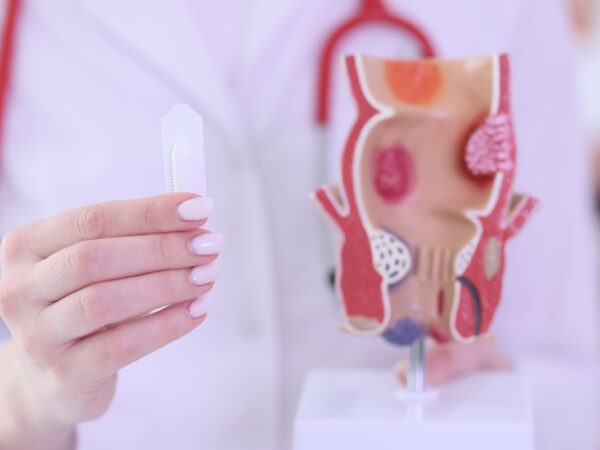When it comes to health discussions, topics like heart care, fitness, or nutrition often take the spotlight. Yet, there are vital areas of health that remain largely ignored due to discomfort or embarrassment. Proctology, the medical speciality that treats conditions of the colon, anus, and rectum, is one such area. Despite being essential for overall digestive and bodily function, anal and rectal health is often neglected until symptoms become severe. Understanding proctology and its importance can help individuals take proactive steps toward prevention, early diagnosis, and a better quality of life.
What Is Proctology?
Proctology, also known as colorectal surgery, focuses on diagnosing and treating diseases affecting the anus, rectum, and lower part of the digestive tract. A specialist in this field, called a proctologist, addresses a range of conditions such as haemorrhoids, anal fissures, fistulas, abscesses, incontinence, and even colorectal cancers. This medical speciality combines clinical examination, diagnostic imaging, and surgical expertise to help restore normal bowel function and comfort.
Many people are unaware that symptoms like bleeding, pain during bowel movements, or persistent itching can indicate underlying conditions that require medical evaluation. Since these symptoms are often ignored or self-treated with over-the-counter remedies, serious conditions may go undetected for months or even years. Proctology plays a vital role in ensuring that such issues are managed effectively and professionally.
The Importance Of Early Diagnosis
One of the key reasons anal and rectal health deserves more attention is the importance of early diagnosis. Conditions like haemorrhoids or fissures may start as minor discomforts but can escalate into chronic pain or complications if untreated. The fact that some symptoms, such as rectal bleeding or unexplained changes in bowel habits, can occasionally be signs of colorectal cancer is more worrisome. Detecting these signs early through proper proctological consultation can significantly improve treatment outcomes.
Modern diagnostic tools such as anoscopy, colonoscopy, and imaging scans allow proctologists to identify problems at an early stage. These evaluations not only help detect diseases but also guide preventive care. Routine check-ups for individuals over 45 years of age or those with a family history of colorectal disease can help prevent serious complications through timely intervention. Conditions such as Varicose veins, which affect blood flow and pressure in the lower body, can also contribute to rectal issues like hemorrhoids, highlighting the importance of comprehensive vascular and proctological care.
Common Proctological Conditions
Several common conditions fall under proctology, and most are more prevalent than people realise. Haemorrhoids, for example, affect millions of individuals worldwide. They happen when veins in the anus or rectum swell, causing discomfort, bleeding, and itching. Small tears in the anus’s lining, known as anal fissures, are extremely uncomfortable and frequently occur during bowel movements. Fistulas and abscesses are infections or abnormal tunnels that can develop near the rectum and often require surgical correction.
Incontinence and constipation are also significant proctological concerns. They can arise due to nerve damage, muscle weakness, or other underlying disorders. Proctologists are trained to evaluate these issues holistically, often collaborating with gastroenterologists, dietitians, and physiotherapists to design effective treatment plans.
Modern Treatments And Advancements
With the creation of minimally invasive techniques that shorten recovery times, minimise pain, and leave scars, proctology has made tremendous strides. Laser surgery, stapled hemorrhoidectomy, and rubber band ligation are examples of modern treatments that have transformed patient experiences. Many of these procedures can be done on an outpatient basis, allowing patients to return to daily activities sooner.
In addition to surgical techniques, proctologists also emphasise lifestyle changes, dietary management, and preventive care. Increasing fibre intake, staying hydrated, and maintaining regular exercise are often part of long-term management. Early consultation can ensure that most conditions are managed with simple interventions before surgery becomes necessary. Gastroenterology works closely with proctology to ensure comprehensive digestive health, as many rectal and anal disorders are often linked to broader gastrointestinal conditions.
Overcoming The Stigma Around Anal And Rectal Health
A major barrier to proper care in this field is the social stigma attached to discussing anal and rectal issues. Many individuals hesitate to speak openly about discomfort, fearing embarrassment or judgment. This silence can delay diagnosis and make conditions worse over time. Promoting awareness and normalising conversations about proctology can help overcome this barrier.
Public education of the significance of rectal health is largely the responsibility of healthcare providers, clinics, and even the media. Encouraging open dialogue about symptoms and preventive screenings can help individuals recognise that these issues are medical, not taboo.
Taking Charge Of Your Proctological Health
Good anal and rectal health begins with awareness and preventive care. Paying attention to bowel habits, maintaining a balanced diet rich in fibre, avoiding prolonged sitting, and staying active all contribute to healthier bowel function. Most importantly, any signs of bleeding, pain, or changes in bowel patterns should never be ignored. Seeking professional help from a qualified proctologist can make a significant difference in outcomes.
In conclusion, proctology deserves far more attention than it currently receives. The rectum and anus are vital parts of the digestive system, and maintaining their health directly impacts comfort, hygiene, and overall well-being. By shedding the stigma and embracing awareness, individuals can take proactive steps to prevent disease, detect problems early, and lead healthier, more confident lives.

